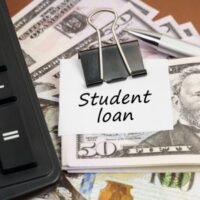Student Loan Payments Have Restarted — Can You Discharge Those Loans in Bankruptcy?

Federal student loan payments have restarted for millions of Americans, and although many have been approved for income-driven repayment (IDR) programs that include the new “SAVE” plan designed to lower monthly payments for many borrowers, many of those student loan debtors will soon be struggling to make their payments. Now that student loans have restarted and you are working through the steps of making monthly payments again, you might be wondering: can I discharge my student loans in a bankruptcy case?
As you might already be aware, the U.S. Department of Justice (DOJ) issued new guidance just under a year ago concerning the process for assessing bankruptcy cases involving student loans. While you will still need to meet the “undue hardship” requirement, the new DOJ guidance has made it easier to do so. Our bankruptcy lawyers in West Palm Beach can provide you with more details.
You Will Submit Evidence of “Undue Hardship” through an Attestation Form
If you want to file for bankruptcy in order to discharge your student loans now that payments have begun again, you will first need to file for individual bankruptcy with assistance from an attorney. While you will still need to go through an adversary proceeding to show that your student loan debt is eligible for discharge, the way you will show this has been significantly simplified.
Now, in a bankruptcy case, you will complete a 15-page attestation form with help from your lawyer that provides evidence of the “undue hardship” factors.
DOJ Attorneys Will Assess the Undue Hardship Factors
Then, once you submit the attestation form, rather than a complicated process to determine whether you have met the “undue hardship” requirement, attorneys from the DOJ will assess the information contained in your attestation form to determine whether continuing to make student loan payments would impose an undue hardship, or a partial undue hardship, on you.
DOJ attorneys will specifically be assessing the information you have submitted to determine your: 1) present ability to pay; 2) future ability to pay; and good faith efforts “to earn an income, manage expenses, and repay [the] loan,” according to the DOJ. Our lawyers can discuss the evidence you will be submitting in a bankruptcy case to meet the “undue hardship” requirement, and we can discuss how the DOJ attorneys may be likely to assess the factors in relation to your case and circumstances.
Contact a West Palm Beach Bankruptcy Lawyer
Do you have student loan debt that you are hoping to discharge in a personal bankruptcy case now that student loan payments have restarted? You should know that our experienced West Palm Beach bankruptcy lawyers at Kelley, Fulton, Kaplan & Eller can help you. We know how crippling student loan debt can be, and we are committed to assisting clients with bankruptcy cases involving student loan debt. We have experience handling bankruptcy cases that involve student loans, and we can begin working with you today.
Our firm can explain how the new guidelines can help you to have your loans fully or partially discharged, and we can go over the undue hardship factors with you in relation to your case. Do not hesitate to get in touch with us.
Source:
justice.gov/d9/pages/attachments/2022/11/17/student_loan_discharge_guidance_-_fact_sheet_0.pdf



